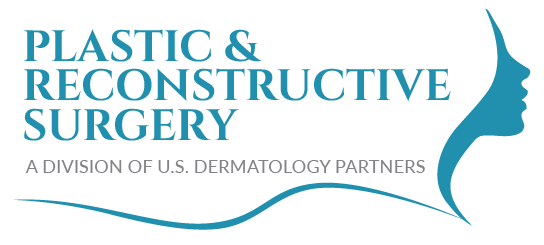Facial Reconstruction Surgery
Reconstruction surgery may be recommended to improve the appearance after the results of injury, damage, surgery, trauma, or congenital defects. There are a wide range of reconstructive surgeries. To learn more about your options, you can explore the details on this page or schedule a consultation at Plastic & Reconstructive Surgery – a division of U.S. Dermatology Partners.
What Is Reconstruction Surgery?
While reconstructive surgery may be performed on any part of the body, it is most commonly performed to restore damaged facial structures. The goal of reconstructive surgery is to restore lost or damaged structures for a more natural, flawless appearance.
Some of the most common forms of reconstructive surgery offered at the Plastic & Reconstructive Surgery include:
- Mohs Defect Reconstruction – following Mohs surgery to remove skin cancer, some people have indentations and deep scarring. Numerous reconstructive options can be used to improve the appearance including skin grafting, skin flap treatment, or cartilage grafts.
- Cleft Lip Revision – for those born with a cleft lip, surgery may be recommended to improve the appearance. This may include closing the cleft, scar revision of the lip, and improving the shape of the upper lip. Rhinoplasty (nose job) may also be recommended.
- Otoplasty – this procedure uses permanent sutures (stitches) to adjust the position of protruding ears. It may also involve changing the shape or size of the ear.
- Earlobe Repair – if the earlobe has become elongated, split, or misshapen, earlobe repair may be recommended. A variety of surgical techniques may be utilized to adjust and reshape the earlobe.
Benefits of Reconstruction Surgery
The main reason people choose to receive reconstruction surgery is that they want to restore their natural appearance, so they can look and feel more like themselves.
There are many additional benefits to receiving reconstructive plastic surgery, including:
- Improved self-esteem and self-worth
- More aesthetically pleasing appearance for increased confidence
- Increased function and range of motion
- Relief from pain
Recovery After Reconstruction Surgery
Following your reconstruction surgery, your plastic surgeon will walk through aftercare instructions to ensure you heal quickly. They should also schedule periodic follow-up visits to check your healing progress. Regardless of your specific recovery plan, it’s essential to get plenty of rest as you heal. The surgical site should also remain elevated as much as possible to minimize swelling, inflammation, and discomfort. You should also eat a nutrient-rich diet and drink plenty of water. Depending on the complexity of your procedure, you will likely need to refrain from exercise for several weeks. Your surgeon can give you a specific time frame. If you notice any concerns, consult with your surgeon right away.
Risks Associated with Reconstruction Surgery
Deciding to receive surgery will always come with associated risks, but a qualified plastic surgeon can perform surgeries in such a way that risks are minimized. Risks commonly associated with surgery include bleeding, bruising, scarring, infection, and swelling following the procedure.
FIND A PHYSICIAN NEAR YOU
PHYSICIANS THAT OFFER FACIAL RECONSTRUCTION PROCEDURE


